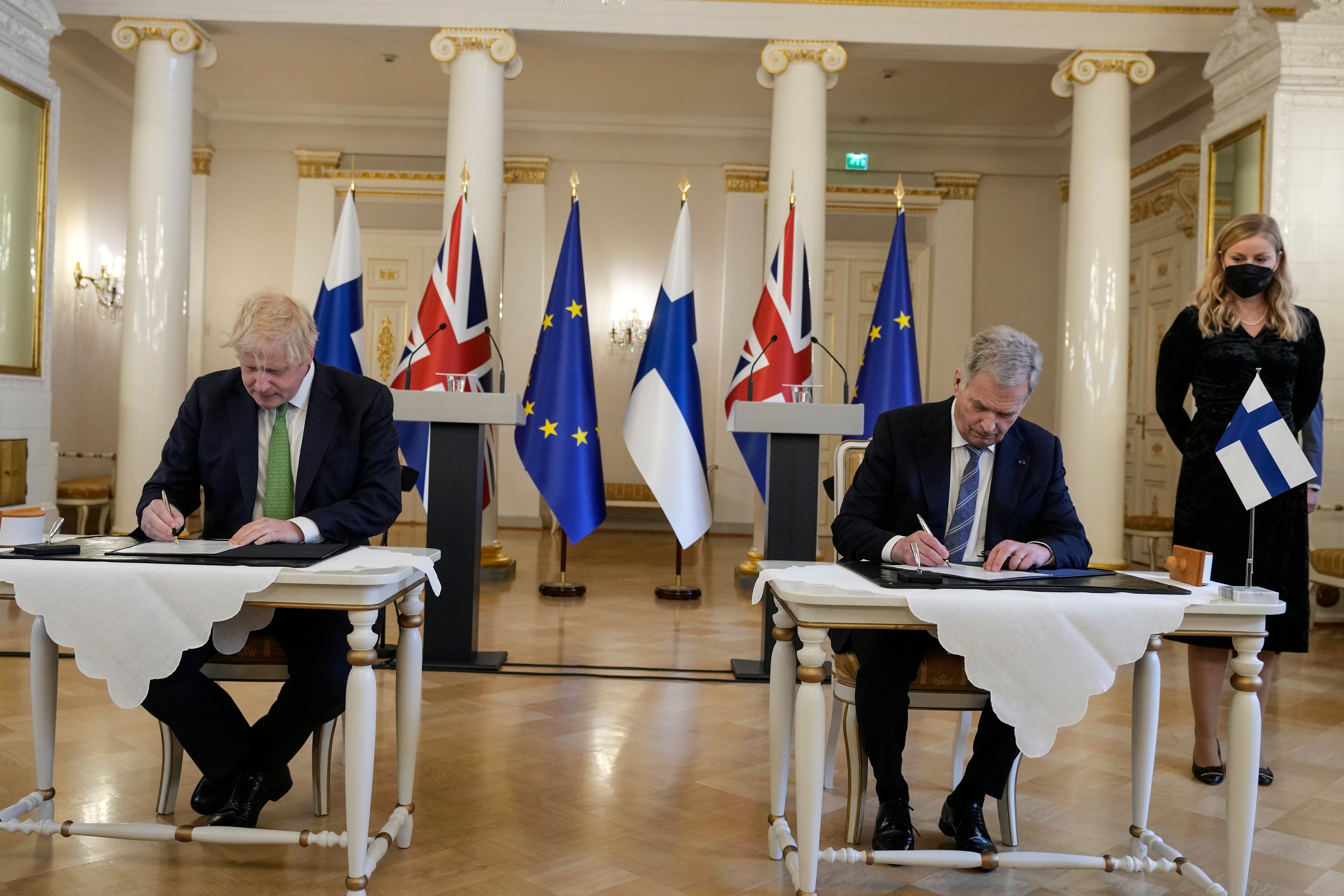Nato may soon welcome Finland and Sweden – another blow for President Putin
Editorial: The invasion of Ukraine demonstrated to the Finns and the Swedes that they could no longer persevere with their historical policies of neutrality in the hope that Russia would leave them alone

Rarely has the law of unintended consequences worked with such devastating effect as in Russia’s invasion of Ukraine.
The conduct of the war has disgraced Russia’s armed forces and demonstrated their multiple weaknesses. It has isolated Russia economically and diplomatically. It has made even the few friends it has in the world nervous about supporting it, not least because it looks as though President Putin has embarked on an unwinnable war.
Ukraine remains an independent state, its president a global figure of Churchillian proportions. In a country full of hero citizens and hero cities, Ukraine is, to the free world, a hero nation. Even now, after being subjected to a bombardment unprecedented in Europe since the Second World War, the band of soldiers in Mariupol remains stubbornly in place. The “special military operation”, which Russia hoped would amount to a lightning annexation of a smaller neighbour, was not supposed to play out like this.
Far from pushing back Nato and neutralising its influence, Russia’s actions have prompted a significant bulking up of the alliance’s military potential, with Finland, and soon Sweden, set to join the 30-strong organisation. Virtually the whole of Europe and North America stands united in an all-for-one front against President Putin’s neo-imperialist ambitions.
Unlike the present Russian Federation, and the Soviet Union before it, Nato has never launched an illegal war of aggression with a view to annexing territory for any of its member states. It may be bristling with the latest military technology – used to devastating effect in Ukraine – but it has no intention of invading Russia. Neither, it hardly needs saying, had Ukraine. Nor are the west and Ukraine run by the heirs of Adolf Hitler. Moscow has made itself look foolish and antisemitic, as well as dangerous, in propagating such absurdism.
Russia, as ever, has promised to take “retaliatory steps” in response to Finland’s accession to Nato. That is a threat, and whether or not it is credible, it is something to which a group of sovereign democracies need not respond. The very fact of the invasion of Ukraine demonstrated to the Finns and the Swedes that they could no longer persevere with their historical policies of neutrality in the hope that Russia would leave them alone. Though well prepared militarily, they still need the protection of a bigger club in the face of Russia’s aggression and its record of war crimes.
All that said, it is obviously a dangerous moment in European history. The choice, though, is a familiar one. Peace could very easily be secured if Ukraine were willing to give up territory and its right to self-government and become a virtual colony of Russia – its people subjugated or deported, its dissidents murdered. So too could Moldova, Poland, Finland and the rest, inside or outside Nato’s formal structures, find peace of mind simply by doing as the Kremlin wishes. But why should they? Would the British or the French?
To keep up to speed with all the latest opinions and comment, sign up to our free weekly Voices Dispatches newsletter by clicking here
Sometimes it is necessary to threaten war to prevent war, and to secure a peace that is not the peace of the graveyard. Russia hints at nuclear warfare, but President Putin knows that this might mean the end for the person he loves most in the world – himself.
President Putin will sooner or later have to understand that Nato is a peaceful organisation that exists only to deter potential aggressors. It would not be passing such quantities of weaponry or financial support to Ukraine if Ukraine had started the war with Russia. Germany, Sweden, France and Finland would still be pursuing neutralistic, accommodative policies, eagerly importing Russian oil and gas, and investing in new industries in the Russian Federation. Russia has brought this cataclysm entirely on itself.
Nato asks only that Russia leave its members alone. After Ukraine, Putin would be wise to learn his lesson, sit on the territory he has already occupied, declare victory, and end the fighting.



Join our commenting forum
Join thought-provoking conversations, follow other Independent readers and see their replies
Comments